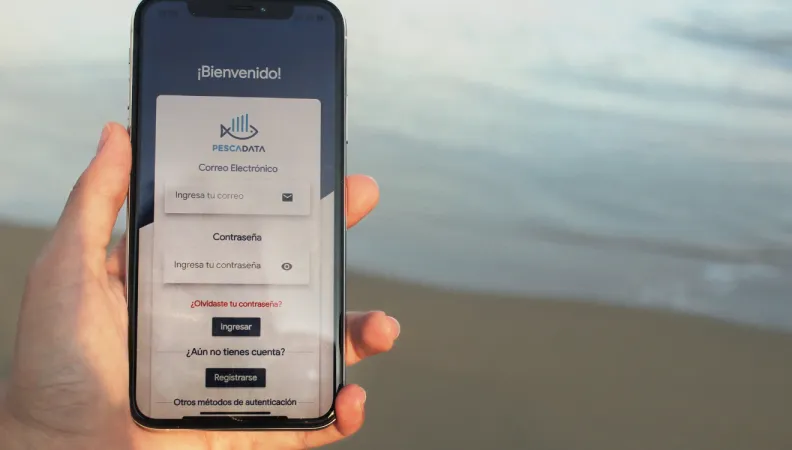Share the page
A Smart App for Sustainable Fishing in Mexico
Published on

As part of our “Shared Innovation” series, AFD is highlighting innovative programs created or developed in our partner countries.
The Mexican NGO Cobi and local fishers have developed a new smart phone app that enables fishers to track and monitor animal populations, including birds, sea mammals, fish, and crustaceans. This innovation, supported by the French Facility for Global Environment and AFD will be featured at the One Ocean Summit, the international summit devoted to ocean conservation, to be held in Brest, France, on February 9–11.
See also: Our collection of “Shared Innovation” articles
Mexico is home to nearly 12% of the Earth’s species, its rich biodiversity making it one of the 17 “megadiverse” countries worldwide. But because the country’s economic growth is strong and its population big (130 million people), conservation of its environment is crucial for the future. Indeed, pollution and overexploitation of natural resources are disrupting Mexico’s ecosystems. That’s why the country has created natural protected areas including the Cabo Pulmo National Marine Park in the Gulf of California, which oceanographer Jacques Cousteau nicknamed the “aquarium of the world.”
Mexican NGO Comunidad y Biodiversidad (Cobi) promotes marine conservation and sustainable fishing management, especially in northwest Mexico, and works in partnership with local communities. In this region, no fewer than 2500 species of animals have been identified: invertebrates, fish (particularly sharks and rays), turtles, birds, and marine mammals. Cabi has developed the “Blue Innovation for Fishing in Mexico” program, to help take stock of fishing resources.
One of the main features of the program is a digital tool, the PescaData app. It's a free Spanish-language collaborative tool designed by and for fishers. Using this app, fishery monitoring and management can be carried out via a platform that links fishers on a vast network.
Renewal of species
Sea and ocean resources are not inexhaustible. “This project seeks to respond to the overfishing that results from the sector’s industrialization,” says Arnaud Dauphin, Director of the AFD office in Mexico. “It’s also an important tool for fighting non-selected fishing.” The project should lead to some fishing zones becoming sanctuaries at certain times of the year.
The total cost of the project is €2.4 million. AFD is co-financing half of this amount (nearly €1.2 million) via the French Facility for Global Environment (FFEM). Cobi is financing the remaining half thanks to philanthropic support.
Awareness raising among indigenous communities
Large indigenous communities live from fishing in the area. As quotas will probably be imposed in reaction to the depletion of fishery resources in the gulf, awareness raising will have to be carried out among those communities.
The target of this outreach includes women, many of whom manage their own fishing activity. “The idea is to introduce long-term reflection on the issue,” says Arnaud Dauphin. One concern: crab fishing often involves particularly fine-woven nets that capture not only crabs, but also turtles, hammerhead sharks, and other protected species.
See also: In Mexico, AFD is Committed to Sustainable Marine Resource Management
PescaData proposes digital literacy on marine ecosystems, protected species, and resource management. There are also plans for training on how to use the app, which seeks to make each fisher a guardian of the sea. As the head of the project says, “This project will enable us to develop a collective spirit to help conserve the communities’ lifestyle.” Several hundred fishers are already using PescaData.
Renewing relations between policies and people
Protected fishing zones have existed for several years in Mexico, but they are not always respected. Fish stocks have dropped in the Gulf of California. This four-year project seeks to make fishers understand why it’s important to respect the zones but also helps them continue their fishery activity—essential for their economy and their food—under better conditions.
For now, this project is active only on Mexico’s Pacific coast. But the app could eventually be used across the Caribbean coast.
